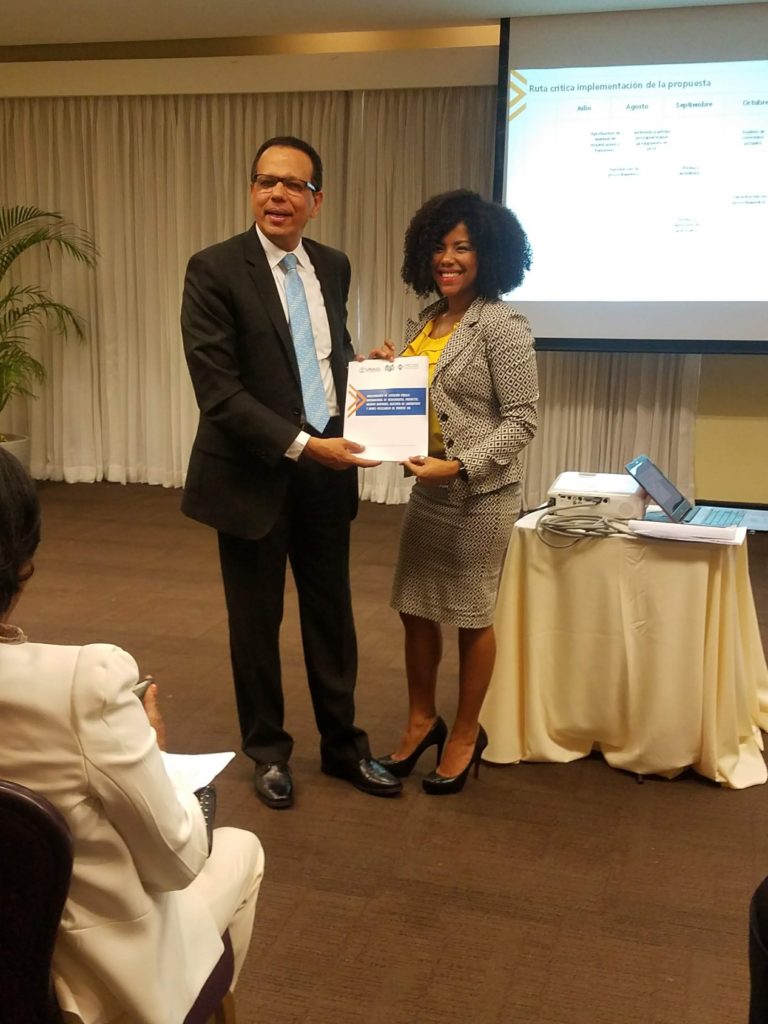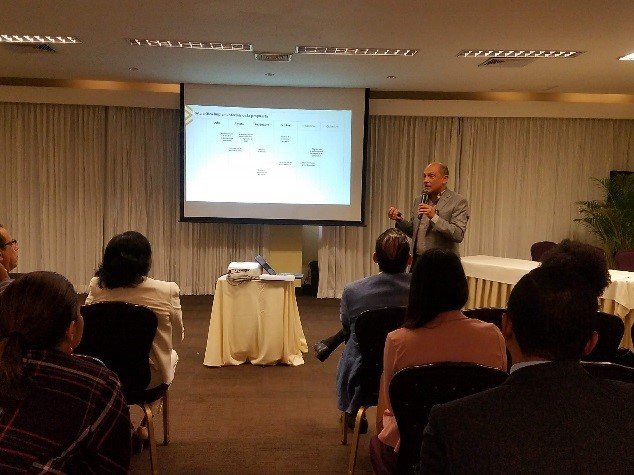How the Dominican Republic is Improving HIV Medicine Procurement
Categories: Announcements, HIV/AIDS
In the Dominican Republic, where an estimated 67,000 people are living with HIV, the government is improving the way antiretroviral treatment (ART) and other medical supplies are procured. Despite Dominican law mandating that the agency PROMESE-CAL manage all medical procurement, HIV commodities and medications are supplied through external agencies, the current norm for all disease control programs in the nation. To reduce inefficiencies arising from parallel procurement systems, USAID’s Health Financing and Governance Project (HFG) is supporting PROMESE-CAL in developing an International Procurement Unit capable of supplying the medicines required by the nation’s disease control programs (DCPs), which make up approximately 20% of the Dominican Republic’s medical commodity purchases.
In the case of HIV, as well as for malaria and other DCPs, most drugs and commodities required for the national response are purchased internationally using a combination of public and donor funding. For 2016, the total spending on ART and HIV commodities amounted to USD $14.5 million, with the majority (USD $11 million) funded by the Dominican Ministry of Public Health (MSP). As PROMESE-CAL has not historically had the capacity to manage international procurement, purchases for the HIV program are instead made by the National Commission of HIV and AIDS (CONAVIHSIDA), despite this agency’s lack of legal mandate for procurement. The transfer of this responsibility to PROMESE-CAL with the establishment of the International Procurement Unit will allow for clear, evidence-based procedures for the procurement of ART and related commodities to help ensure sustainable access to treatment.
HFG’s assistance to PROMESE-CAL ranges from unit design to implementation guidance. In early 2018, HFG evaluated the unit’s legal and institutional viability by reviewing PROMESE-CAL’s current structure and operations, and constructed a preliminary proposal for the unit’s organization and functions. Then, in March, technicians and officials from PROMESE-CAL met with HFG to revise and approve the proposal, which became the framework for the unit’s operating procedures. These operating procedures, developed by HFG in April, include organizational charts, descriptions of key positions and responsibilities, and documentation guidelines. PROMESE-CAL technicians approved these items at a workshop in April, and HFG presented the completed operational manual along with annexes for the international public tender and international agreements sections of the unit to officials from PROMESE-CAL in June.
Going forward, HFG will develop an implementation plan which will guide PROMESE-CAL in the efficient establishment of the unit. The plan will operate on a sliding timeline, and will include special guidance on activities crucial to the unit’s opening, such as the naming of personnel and budgeting changes.
The transition to a single procurement system under PROMESE-CAL is a step forward for those living with HIV in the Dominican Republic. Besides eliminating administrative duplication, the unit will equip the nation with standard procedures for all international procurement of medicines and give PROMESE-CAL stronger capacity to negotiate prices. This will ultimately improve the Dominican Republic’s access to cost-effective HIV treatment and diagnostics, improve efficiency of international procurement of medicines for other diseases and conditions, and potentially increase domestic fiscal space to achieve the 90-90-90 goals.


Caption: Photos from the presentation of the finalized operating procedures and organizational plan for the International Procurement Unit to officials from PROMESE-CAL in Santo Domingo



